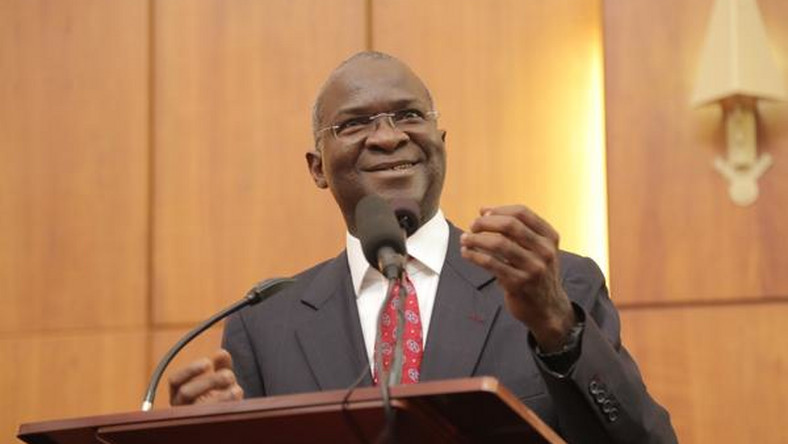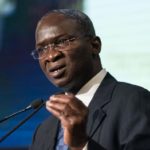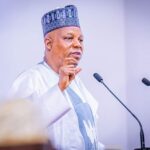The Minister of Power, Works and Housing, Barrister Babatunde Raji Fashola’s incremental, steady and stable plan did not record a high success because a number of power projects initiated to boost the power supply situation in the country have either been stalled or have yet to be completed.
There were some ongoing key power projects in 2015 when Fashola assumed office. He promised to continue and complete them.
Among these are the 718 megawatts (MW) Zungeru Hydropower in Niger State, the 215MW Kaduna Power Plant, the 40MW Gurara Hydropower in Kaduna State and the 10MW Katsina Wind Farm.
Under the minister, government initiated the 240MW Afam VI Fast Power and the 3050MW Mambilla Hydro-Power projects in Taraba State.
As at today, none of these projects has been delivered, though substantial work has gone into them.
Fashola led his team to resolve litigation issues around Zungeru and Mambilla projects, leading to continuous work and resettlement exercises for Zungeru, while Mambilla has been awarded but the negotiation for China Export Import Bank to finance a huge chunk of is still on-going.
The 215MW Kaduna plant was retrofitted by Fashola’s team to now take diesel or natural gas as fuel. It would be test-run this year as N400m worth of diesel has been budgeted for it in the 2019 budget.
For the 10MW Katsina Wind Farm, officials said it would be commissioned by October, 2019, after a timeline for that was missed in 2018. The 40MW Gurara plant is not yet commissioned, so is the 240MW Afam Fast Power which is taking over two years to complete.
Power generation was over 4,500MW when Fashola assumed office, today the peak generation has risen to 5,375MW, but the basic fluctuation, systems collapse and power rationing still exist. Generation capacity rose from 6,000MW to 7,500MW; transmission capacity rose from 5,500MW in 2015 to 8,100MW in 2018; and distribution rose from 4,500MW to 5,375MW in 2019, statistics revealed.
The minister also promised Nigerians “incremental, steady and stable power” with plans to strengthen the Transmission Company of Nigeria (TCN) by completing 142 projects aimed at boosting the electricity supply in the country.
He promised to ensure that Generation Companies (GenCos) and Distribution Companies (DisCos) were held to account for further investments.
Fashola then declared his intent to support the tariff being reviewed by the Nigerian Electricity Regulatory Commission (NERC) before he assumed office.
“The surest way not to have power is to oppose the implementation of the tariff order,” he had said in December, 2015.
Concerns for power issues
The minister took two quick steps that showed he has passion to solve the problem of power supply for Nigerians. He declared the Customer Eligibility policy and then initiated a Meter Assets Providers (MAP) policy. He declared the Eligible Customer in May 2017 and by November, NERC was pressured to roll out the regulation to allow customers who use power over 2MW to connect directly to a GenCo and have TCN transport the power to them. It was to ensure that a debated 2,000MW stranded energy is evacuated to attain steady and incremental power slogan of the minister and boost supply mostly to manufacturers. Insiders said NERC and the Bureau of Public Enterprises (BPE) were slowing the pace for that to kick despite the minister’s support for the regulation.
The MAP was pushed by Fashola since 2017 and materialised in March, 2018, when NERC unveiled the regulation to allow people to buy meters and stop the chaotic regime of estimated billing. That process is billed to start May 1, across DisCos with customers paying N37,000 and N67,000 for single and three-phase meters, and having them installed in 10 working days.
To the DisCos, the minister intervened from his arrival in ensuring that over N90bn energy debt owed by Ministries, Departments and Agencies (MDAs) were verified and cleared. The Federal Government’s debts were verified at about 50bn and were offset against the energy debt DisCos owed Niger Bulk Electricity Trading Plc (NBET). DisCos have recorded more payment from MDAs due to those interventions and the mass metering of those maximum demand or large power users.
Fashola also introduced the Distribution Expansion Programme (DEP) which is yet to materialise but is ongoing. It involves a N72bn investment in distribution networks to help distribute more power, especially in supporting the eligible customer regulation.
For the GenCos, the 701.9bn Payment Assurance Guarantee (PAG) was introduced to help give GenCos about 50 per cent of its monthly energy invoice to clear gas debt and others as the DisCos went dip to remitting less than 30 per cent. Officials said the about 80 per cent monthly energy revenue by GenCos saved the power sector from collapse due to revenue illiquidity that mounted. The process had continued from 2017 up till October, 2018, but it is unclear if it continued.
The Rural Electrification Agency (REA) changed under Fashola. Giant strides were made in delivering solar and gas projects to major markets in Kano, Abia and Lagos states. Attempts to electrify and provide uninterrupted power to over 50 rural communities are ongoing in Sokoto, Niger, Cross River, and Ogun states. REA also wants to connect key federal universities and teaching hospitals to dedicated power plants.
Trouble over attempt to add more to DisCos’ board
The minister faced a lot of attacks, especially from the DisCos, on various issues. At some points the DisCos went to court to challenge certain actions. For instance, a move to create a central account for DisCos revenue collection and escrow their account to collect energy revenue at source failed when DisCos went to court and some declared force majeure.
Next was the attempt by the minister to hoist on the DisCos board add two more members. The DisCos threatened legal action, saying the minister had no right to do that without proper recourse to the Companies and Allied Matters Act (CAMA) and that BPE was already representing the Federal Government on the DisCos board since it maintains 40 per cent shares in the DisCos.
It has been a turbulent administration for the minister in the power sector; from initiating policies to delivering on projects. Although he delivered on some key areas, there are others where the vacuum is still being felt. The financial aspect of the Power Sector Reform Programme (PSRP), Fashola’s pet project, has not met with the desired result. He worked to get a $1bn loan from the World Bank to reset the sector but could not scale is yet to materialised.

 Join Daily Trust WhatsApp Community For Quick Access To News and Happenings Around You.
Join Daily Trust WhatsApp Community For Quick Access To News and Happenings Around You.

